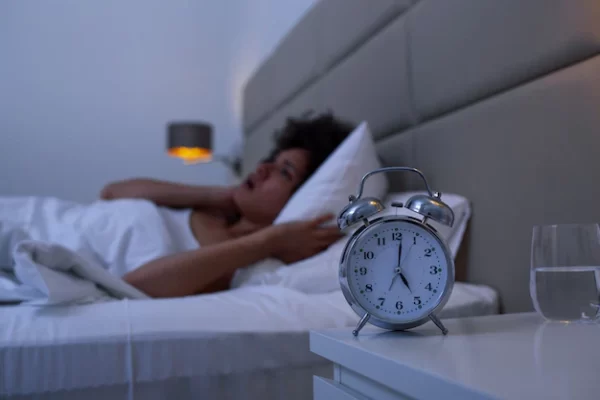Your inability to fall asleep and enjoy a quality night’s sleep can be attributed to myriad factors, including daytime fatigue, depression, anxiety, and lack of concentration. Most of these issues affect the quality of your life and can make you unhappy.
Having a sleeping disorder does not mean you can never enjoy the peaceful, deep sleep you enjoyed previously. The following four ways can help you to eradicate your sleeping disorder.
Table of Contents
Medical Treatments
Medication is the most common treatment for sleeping disorders, often prescribed by medical experts. Sleeping aids such as suvorexant, melatonin, ramelteon, and doxepin are highly recommended for treating insomnia. Medications such as pregabalin, gabapentin, and enarcabil are often prescribed for treating restless legs syndrome.
After diagnosing your sleeping disorder, your doctor may prescribe sleeping pills, melatonin supplements, or cold medication. If underlying conditions cause the sleeping disorder, the doctor may prescribe medications for treating such conditions.
Lifestyle Change
Your sleep apnea snoring dentist or doctor may also recommend a change in lifestyle to help you eradicate your sleeping disorder. Lifestyle adjustments are often incorporated with medications to fasten the healing process. The most recommended lifestyle changes require you to stop or reduce your alcohol, tobacco, and caffeine intake.
Another lifestyle change to help you eradicate sleeping disorders is stretching and exercising regularly. You’re also advised to lower water intake before bedtime while maintaining a regular sleeping schedule. Obesity triggers discomforts that make it hard for people to fall asleep. Therefore, you may be required to maintain a healthy weight as per the recommendations of the medical specialist.
Cognitive-Behavioral Therapy
Cognitive-behavioral therapy is basically the most effective and safest way to address sleeping disorders. The therapy helps the patient change their way of thinking and behaviors before bedtime by imparting useful relaxation skills and altering lifestyle behaviors that directly affect sleeping patterns. Therapy addresses the depression, anxiety, and stress issues that cause or are caused by sleeping disorders. Cognitive-behavioral therapy goes to a deeper extent to treat the underlying issues causing the sleeping disorders while still helping you to have healthy and better-sleeping patterns.
Studies have shown CBT to be more effective in treating chronic insomnia than prescription sleep medication. In fact, cognitive-behavioral therapy triggers more positive changes in the patient’s life, making them fall asleep fast and sleep longer.
The good news is that the benefits associated with cognitive-behavioral therapy are long-term. CBT works by relaxing your mind, boosting your daytime habits, changing your outlook, and preparing you for a healthy night’s sleep.
Cognitive-behavioral therapy involves identifying the negative thoughts making you have sleeping issues, challenging the negative thoughts through expert help, and replacing those thoughts with realistic and positive thoughts.
Stimulus Control Therapy
Stimulus control therapy is a sleeping disorder treatment created to prepare your body and mind for a quality night’s sleep. The therapy is designed to train the body and mind to know bedtime is sleeping time. The training process is conducted through learned association. Frequently, people battling insomnia tend to experience awful symptoms such as fear, frustration, and dread whenever it is bedtime. The fact that they spend so many hours awake in the bed tossing and turning before they fall asleep makes them associate sleep with negativity.
Through the stimulus control therapy techniques, you are taught techniques to help you keep off patterns and behaviors that could make you fail to sleep. The stimulus control method works to prevent and break the negative cycle of insomnia patients associate with their bedtime. To enjoy your night’s sleep when undergoing this treatment, you need to track the houses you spend sleeping or awake. Whenever you wake up feeling sleepy and tired, you would rather take another few minutes of sleep. Learn to sleep at a specific time at night and wake up at particular times in the morning.
Sleeping disorders are a menace that threatens the patient’s lifestyle and their careers life and relationships. If you discover that it takes you hours to fall asleep and your time in bed is always limited, it is time you underwent comprehensive sleep disorder treatment. Those mentioned above are the four most popular and effective methods highly recommended to everyone who has insomnia and other related sleeping disorders.
Big time nutritionist and makeup artist.
Passionate about heeding the needs of her readers to help them live a healthy and beautiful life.
Find her in her den Unsullyd.com.





